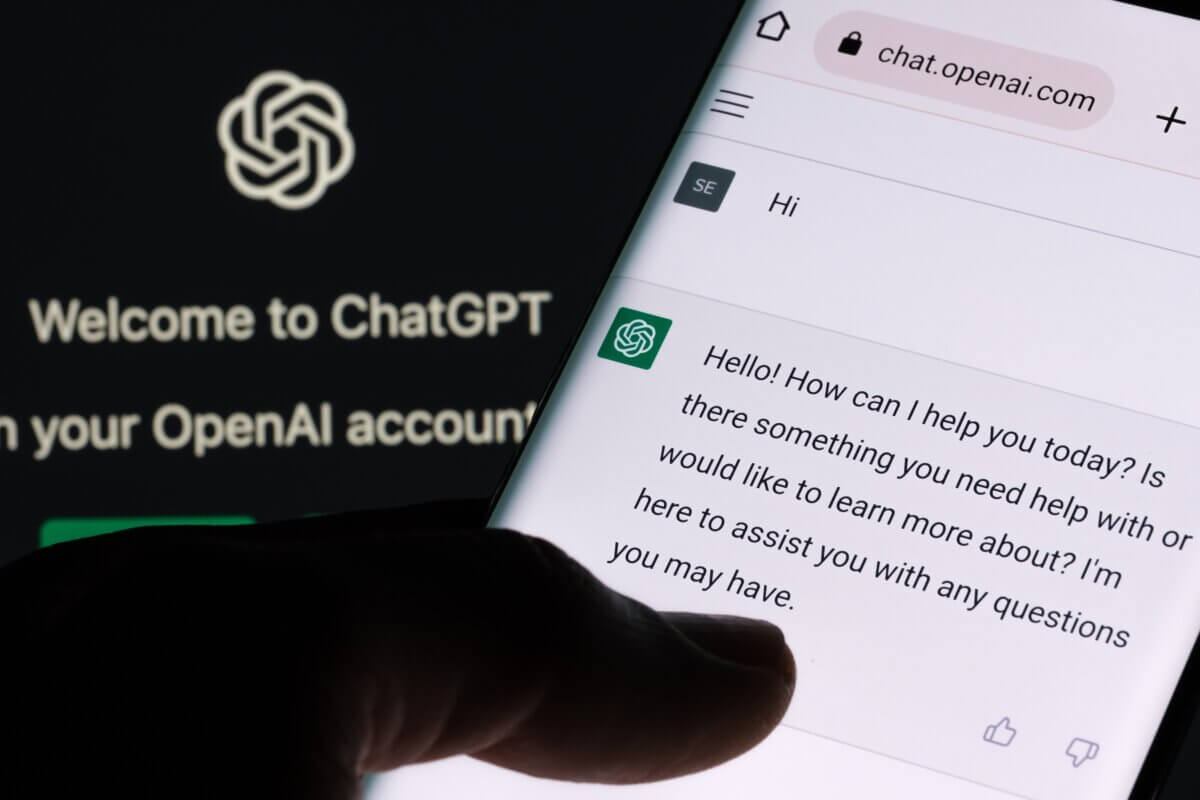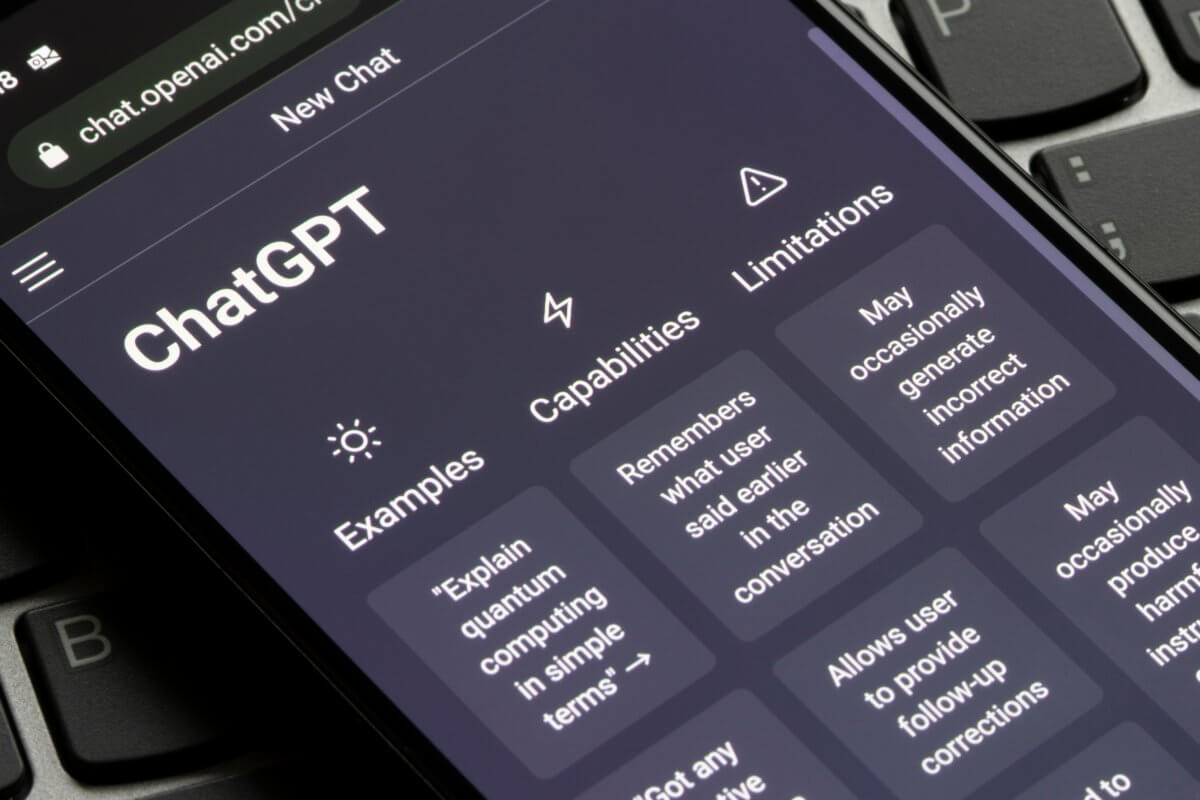
Many people are turning to ChatGPT for help with personal issues, phobias, and advice. (Photo by Ascannio on Shutterstock)
WÜRZBURG, Germany — In an era where artificial intelligence (AI) is reshaping industries from finance to transportation, healthcare stands on the brink of a technological revolution. AI-powered tools are increasingly capable of diagnosing diseases, analyzing medical images, and even providing personalized medical advice. But as these technologies advance, a crucial question emerges: Are patients ready to trust AI with their health?
A new study published in Nature Medicine suggests that, when it comes to medical advice, humans still prefer the human touch – even if the advice itself is identical.
Researchers from the University of Würzburg in Germany conducted two large-scale experiments to explore how people perceive medical advice when they believe it comes from different sources: a human doctor, an AI system, or a combination of both. The results reveal a surprising bias against AI in healthcare, highlighting potential hurdles in the widespread adoption of these promising technologies.
In the studies, participants were presented with various medical scenarios, such as questions about smoking cessation or preparing for a colonoscopy. They then received responses to these queries, which were identical across all groups. The catch? Some participants were told the advice came from a human doctor, others were told it came from an AI system, and a third group was informed it was generated by AI but reviewed by a human doctor.
The findings were striking. Participants consistently rated the advice labeled as coming from a human doctor as more reliable and empathetic compared to the same advice when labeled as AI-generated or even AI-generated with human oversight. This held true even though the content of the advice was exactly the same across all groups.
This “anti-AI bias” in healthcare is particularly intriguing, given the rapid advancements in AI capabilities. Recent studies have shown that some AI systems can match or even outperform human doctors in certain diagnostic tasks. For instance, one study found that the AI language model GPT-4 achieved levels of diagnostic accuracy comparable to human physicians. Another study revealed that doctors themselves rated AI-generated responses to medical queries as superior in quality and more empathetic than those from human physicians – when they didn’t know the source.

So why the disconnect? The researchers suggest several possible explanations. One is the perception of AI as “dehumanizing” in a field where empathy and personal connection are highly valued. Patients might feel that AI cannot truly understand their unique circumstances or provide the emotional support they seek in medical interactions.
Another factor could be what the researchers call “uniqueness neglect” – the belief that AI systems cannot adequately consider individual characteristics when providing advice. This perception persists even though modern AI systems are often designed to process and incorporate personal information.
Interestingly, the study found that advice labeled as coming from a combination of AI and human doctors was not perceived as significantly better than AI alone. This suggests that merely adding human oversight to AI systems may not be enough to overcome public skepticism.
These findings have significant implications. As healthcare systems worldwide grapple with increasing demands and resource constraints, AI tools offer immense potential to improve efficiency, accuracy, and access to medical advice. However, if patients are inherently biased against AI-generated advice, the adoption and effectiveness of these technologies could be severely limited.
This bias could lead to scenarios where patients disregard or are less likely to follow potentially life-saving advice simply because they believe it comes from an AI system. It also raises questions about how medical AI tools should be presented to patients to maximize acceptance and trust.
The study does offer some hope, however. While participants were less likely to trust AI-generated advice, they showed equal interest in exploring AI-based medical platforms when given the opportunity. This suggests that people are at least curious about AI in healthcare, even if they’re not yet fully comfortable with it.
As AI continues to evolve and integrate into healthcare, addressing this trust gap will be crucial. Future research may need to explore ways to frame AI involvement in medical decision-making that increases public acceptance. For instance, emphasizing that AI tools process individual patient information or clearly communicating that humans remain in charge of final decisions could help alleviate concerns.
Ultimately, the study serves as a reminder that as we rush to embrace new technologies in healthcare, we must not overlook the human element. Trust, empathy, and personal connection remain fundamental to the doctor-patient relationship. The challenge moving forward will be to find ways to harness the power of AI while maintaining these essential human qualities in medical care.
Paper Summary
Methodology
The researchers conducted two large online experiments. In the first study, 1,050 participants from various countries were recruited. The second study involved 1,230 participants representative of the UK population in terms of age, gender, and ethnicity.
Participants in both studies were presented with four medical scenarios (e.g., questions about smoking cessation or colonoscopy preparation) and corresponding advice. The advice was identical for all participants, but they were randomly told it came from either a human doctor, an AI system, or an AI system with human doctor oversight. Participants then rated the advice on reliability, comprehensibility, and empathy using Likert scales. The second study also asked about willingness to follow the advice and offered participants the chance to save a link to the supposed advice platform.
Key Results
In both studies, advice labeled as coming from a human doctor was rated as significantly more reliable and empathetic than the same advice when labeled as AI-generated or AI-generated with human oversight. There was no significant difference in comprehensibility ratings.
The second study also found that participants were less willing to follow advice when they believed AI was involved in generating it. Interestingly, there was no significant difference in the likelihood of participants saving a link to the platform based on the supposed source of the advice.
Study Limitations
Participants had to imagine themselves in the medical scenarios rather than asking their own questions, which may have affected their perceptions. The interactions were also limited to a single question and response, not capturing the complexity of real-world medical consultations. Additionally, the study only examined perceptions and self-reported willingness to follow advice, not actual behavior in medical situations.
Discussion & Takeaways
The findings reveal a significant bias against AI-generated medical advice, even when human oversight is involved. This bias could pose challenges for the integration of AI tools in healthcare, potentially limiting their effectiveness and adoption. The study suggests that the framing of AI involvement in medical advice is crucial for public acceptance. Future research should explore ways to address this bias, possibly by emphasizing how AI processes individual patient information or by clarifying the role of human oversight in AI-assisted medical decisions.
Funding & Disclosures
The study was supported by the Faculty of Humanities of the University of Würzburg. One of the authors, Moritz Reis, is supported by a PhD scholarship from the German Academic Scholarship Foundation. Another author, Florian Reis, is an employee of Pfizer Pharma GmbH, though Pfizer had no involvement in the study. The authors declared no competing interests that would have influenced the study.







